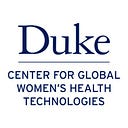Educational Innovation: Beyond Methods, Into Experiences
Part 1: The Durham Community
By Neha Shaw

We typically associate the term “innovation” with ideas of efficient, cost-effective, solutions that optimize results and success. In education, this version of innovation primarily looks like standardized courses, career-oriented curriculum, and online delivery, to name a few examples. While these practices certainly can contribute to student achievement, looking at educational innovation from a more expansive lens allows educators to produce both well-prepared employees and well-rounded graduates. This second version of educational innovation consists of practices that focus on the experience rather than merely the methods of education. Practices may include increasing access to learning communities, tailoring numeracy skills to student majors, giving students more in-class opportunities to share what they’ve learned, creating graphics or visuals to practice recall of information, and much more.
Throughout the Duke and Durham community, the experiential definition of educational innovation has taken root. The Durham County Library features STEAM (Science, Technology, Engineering, Arts, and Mathematics) programming for any curious mind interested in technology and art. The goal of these spaces is to promote creative thinking, problem solving, and exploration as well as access to a wide array of available resources including 3D printers, digital design software, and art supplies. Within the library’s STEAM services department, young community members can create within the MakerLab, and older youth and adults can explore the Innovation Lab, both of which provide technology and resources to support projects and classes in STEAM subjects like crafts, design, and programming.


At Duke, Learning Innovation works with faculty to develop new approaches to active learning, online courses or programs, use of technologies for teaching, and creation of learning networks and communities. Duke Learning Innovation works toward education innovation through transformation of the classroom environment. They do so by prioritizing student-centered, equitable, and accessible learning experiences using Duke’s human and technological resources to build an ecosystem of education and a community dedicated to learning.

There are also several Bass Connections projects within Duke that have researched the intersections of technology, innovation, and education. The OSPRI Lab worked with open source education technology to address the gap between self-organized learning beyond the classroom and the one-to-many, more standardized teaching within the classroom. The 21st Century Student: Open Knowledge and Education Innovation study evaluated the differences between the “closed” knowledge of traditional academic settings and the open knowledge acquired through technological access that can empower students to become innovators themselves.
As a Duke student, I can already see educational innovation’s prominent role in my academic experience, particularly within the FOCUS program offered to first-year undergraduates. FOCUS provides the distinct opportunity for students to learn in an interdisciplinary seminar format and live in shared housing alongside other FOCUS students with similar interests. I am in the Global Health FOCUS cluster and have learned in a variety of ways that I had not been exposed to in my secondary education, such as debates, simulations, proposal writing, and even a hands-on, highly relevant research project. Within the classroom, my professors have flexibility to add guest speakers working in global health advocacy and policy in addition to forming the semester’s path around new ideas that arise as we learn. While I had not heard of this program until I had been admitted to Duke, one of the primary reasons I decided to attend was the truly interdisciplinary nature of each major and course here. I can now see this innovative concept in action through FOCUS and through my interactions with my professors both within the cluster and in my other (non-FOCUS) classes.

GWHT remains an excellent encapsulation of the interdisciplinary work that drew me, and many others, to Duke. From Ignite’s emphasis on teaching human-centered design and holistic health approaches to The (In)visible Organ’s bridging of art and preventative healthcare technology, GWHT and its programs have expanded educational innovation for a long time.

This semester, GWHT is increasing opportunities for learning about educational innovation through the Global Health Leaders Seminar Series. The Center has invited various Global Health Leaders to speak on their research and their methods for educational innovation. In September, Dr. Rebecca Richards-Kortum of Rice University spoke on her impressive career. Next month, Dr. Zaman will be visiting! To RSVP for this seminar, visit https://bit.ly/RSVPghl2.
